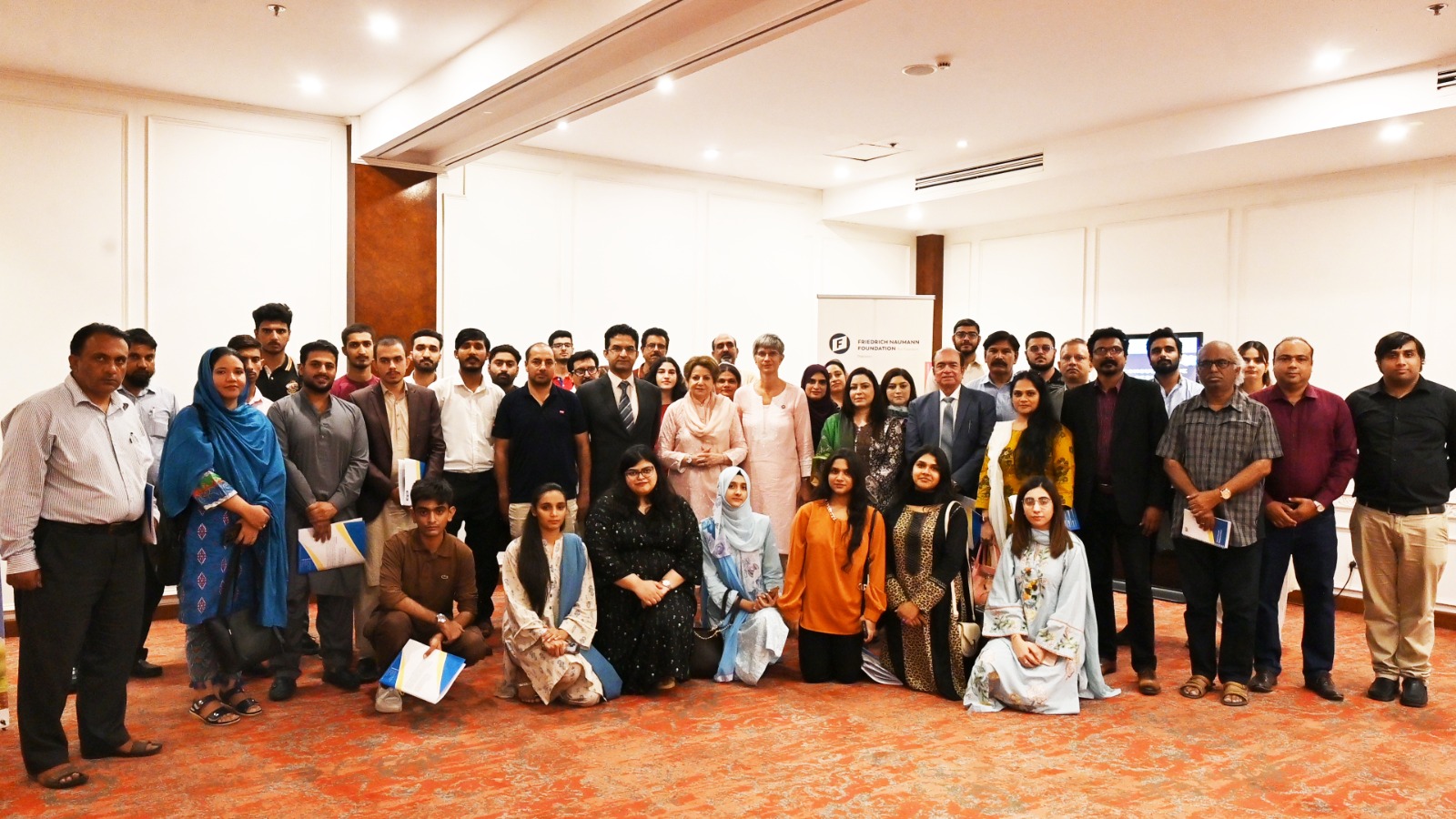News Desk
Islamabad, September 24, 2024:
A high-level consultative session on “Climate Change and the Importance of Climate-Smart Financing” highlighted the urgent need for sustainable financial models to drive climate resilience in Pakistan. Hosted by the Center for Peace and Development Initiatives (CPDI) in collaboration with the Friedrich Naumann Foundation for Freedom (FNF), the event brought together leading parliamentarians, government officials, financial experts, and climate advocates.
In his opening address, CPDI Executive Director Mukhtar Ahmad Ali stressed the critical role of legislators in addressing climate change. He pointed out that, despite Pakistan’s minimal contribution to global emissions, the country remains highly vulnerable to climate impacts. Ali called for stronger political will and bureaucratic reforms to ensure the implementation of climate-smart policies across all levels of government.
FNF Pakistan’s Country Head, Birgit Lamm, detailed the financial toll of climate disasters, citing World Bank data that estimated damages from climate-related disasters in Pakistan at $16 billion, with 4% of the population pushed into poverty as a direct result. Lamm criticized the lack of sufficient action in response to early warnings, referencing the 2022 floods that devastated areas previously affected by the 2010 floods. She emphasized the need for proactive measures to prevent future climate-related crises.
Shaista Pervaiz, Member of the Standing Committee on Climate Change, acknowledged that Pakistan’s ongoing struggle with climate challenges is exacerbated by legislative gaps. She pointed out that the 18th Amendment, which devolved significant powers to provinces, has complicated coordination between provincial and federal governments. Pervaiz stressed the importance of Nationally Determined Contributions (NDCs) and the allocation of dedicated financial resources to meet Pakistan’s climate commitments.
Financial sector experts, including Amer Ejaz, CEO of MAHER Consulting, and Rashid Azeem, UBL’s Chief Green Banking Manager, discussed the need for the banking industry to adopt green financing models. They called for greater collaboration between financial institutions, the government, and private sector stakeholders to ensure that climate resilience is factored into all investment decisions.
Dr. Majid Bilal from the Indus Consortium and Asim Jaffry, Country Program Lead of Fair Finance Pakistan, emphasized the practical applications of green financing and Environmental, Social, and Governance (ESG) frameworks. Both experts highlighted the importance of comprehensive policies that address environmental challenges while also prioritizing social equity.
The session concluded with a unified call for stronger alignment between financial systems, public policy, and climate goals. Participants urged Pakistan’s policymakers to advocate for dedicated climate financing, ensure transparency in the use of funds, and push forward climate-smart policy reforms.


